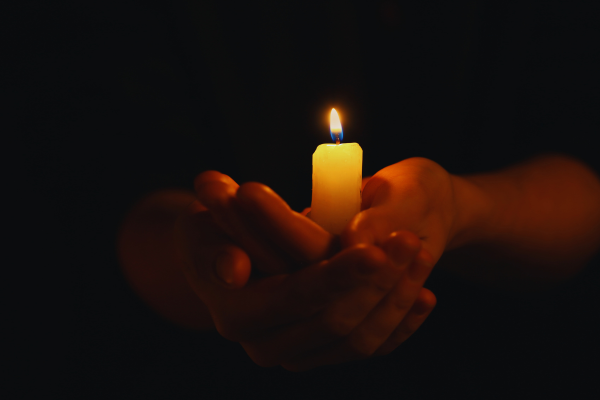8 Ways To Cope With The Death Of Someone From Your Past
Losing someone from our past can evoke a unique blend of emotions. Whether it's a childhood friend, a former teacher, or a long-lost relative, their passing can stir up memories, regrets, and a sense of nostalgia. Coping with the death of someone from your past requires compassion, self-reflection, and gentle care for your emotional well-being.
Here are eight ways to navigate this challenging journey toward healing and acceptance:
1. Acknowledge Your Feelings
The first step in coping with the death of someone from your past is to acknowledge your feelings. Allow yourself to experience the full range of emotions that arise, whether it's sadness, anger, guilt, or even relief. Remember that there is no right or wrong way to grieve, and each person's journey is unique. By giving yourself permission to feel, you create space for healing to unfold.
2.Reach Out for Support
Don't hesitate to lean on your support network during this difficult time. Reach out to friends, family members, or a trusted therapist who can offer a listening ear and emotional support. Sharing your thoughts and feelings with others can provide comfort and validation, reminding you that you're not alone in your grief.
3. Honor Their Memory
Find meaningful ways to honor the memory of the person who has passed away. Whether it's lighting a candle in their honor, creating a scrapbook of shared memories, or planting a tree in their name, these acts of remembrance can provide solace and comfort. Consider organizing a memorial service or gathering with other loved ones to celebrate their life and legacy.
4. Reflect on Shared Memories
Take time to reflect on the memories you shared with the person who has passed away. Flip through old photo albums, revisit places you used to frequent together, or write letters expressing your thoughts and feelings.
Reflecting on the positive moments you shared can bring comfort and remind you of the joy they brought into your life.
5. Practice Self-Care
Amidst the grieving process, it's essential to prioritize self-care and compassion for yourself. Engage in activities that nourish your mind, body, and soul, whether it's taking a long bath, going for a walk in nature, or practicing mindfulness and meditation. Allow yourself moments of rest and relaxation as you navigate this challenging time.
6. Seek Closure
If unresolved feelings or unfinished business linger from your past relationship with the deceased,
consider seeking closure in whatever form feels right for you. This might involve writing a letter expressing your thoughts and feelings, engaging in a symbolic ritual, or seeking guidance from a counselor or spiritual advisor. Finding closure can help you make peace with the past and move forward with a sense of acceptance.
7. Connect with Others Who Knew Them
Reach out to others who knew the person who has passed away, whether it's old classmates, mutual friends, or family members. Sharing stories and memories with others who knew them can provide a sense of connection and validation, fostering a deeper understanding of their impact on those around them.
8. Find Meaning in Their Passing
While the death of someone from your past can be profoundly painful, it can also offer an opportunity for reflection and growth. Consider what lessons you can glean from their life and passing, and how you can incorporate those insights into your own journey. Whether it's cherishing the present moment, fostering deeper connections with loved ones, or living with greater authenticity, finding meaning in their passing can be a source of profound healing and transformation.
Coping with the death of someone from your past is a deeply personal and complex process. By acknowledging your feelings, reaching out for support, honoring their memory, and practicing self-care, you can navigate this journey with grace and resilience. Remember that healing takes time, and it's okay to seek professional help if you're struggling to cope. Ultimately, may you find solace in the cherished memories you shared and the enduring impact they've had on your life.




















